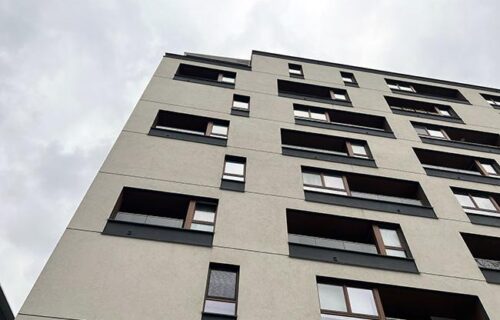Sharply rising energy prices and record inflation complicate the housing situation for more than half of Czechs. It is even more than three quarters of people living in a rental, according to a survey, the results of which were published yesterday by Generali Investments. According to them, the unfavorable economic situation is also reflected in people’s hopes for their own housing. Almost 90 percent of them fear that they will not be able to afford it.
Inflation and high energy prices complicate the housing situation far more than, say, the coronavirus pandemic, Marek Bečička from Generali Investments CEE evaluated the results of the survey. “Over eighty percent of people’s housing expenses are higher than last year, a fifth even pay at least a quarter more,” he pointed out.
Almost a third of people living in rented accommodation said that due to their poor financial situation they could not afford to pay as much for rent as they did a year ago. Two out of five respondents also expressed concern that they will have trouble paying rent in the future. Therefore, according to the survey, more than a fifth of people living in rent are thinking about moving to a smaller apartment or house.
In addition to high energy prices and inflation in general, Czechs are also worried about rising mortgage interest rates. A number of people are ending their fixation, and due to the rise in interest rates, they will pay significantly more. This is also why eight percent of people with a mortgage are considering selling their property and moving into a rental.
If someone bought an apartment in Prague for around five million crowns five years ago, he would have paid about CZK 15,000 a month using a regular mortgage with a repayment period of 30 years and a loan amounting to 80 percent of the real estate price. “But after the end of the fixation, it will be more than 24,000,” points out Bečička. And to illustrate, he adds that while in 2017 CZK 15,000 represented about 39 percent of the average salary in Prague, the installment of 24,000 to 25,000 crowns currently corresponds to half of the average Prague salary.
The current economic situation is also reflected in the hopes of Czechs to purchase their own house or apartment. In the survey, 88 percent of respondents expressed the fear that it will be more difficult for them to achieve their own housing. This represents a significant increase over previous years. In 2021, 77 percent of people shared this concern, compared to 62 percent a year earlier.
But there are also more people who expect a slowdown or a complete stop in the growth of real estate prices. 40 percent of Czechs expect that the value of real estate will continue to grow at the same pace as before. A year ago, however, it was half as much. On the contrary, the share of respondents expecting a “flattening of the bubble” increased from 15 to 26 percent over the same period.
“In the long term, such high growth in the value of real estate is not sustainable, and the first signs of a slowdown are already appearing,” believes Bečička. But he doesn’t expect a turnaround anytime soon, and prices have started to fall at the same rate they’ve been rising. If there is a decrease, according to him, it will be more in the case of more luxurious real estate or older apartments in pre-fab buildings in worse locations, which have been caught up in the wave of price increases from recent years.
According to Bečička, the current slowdown in the real estate market is mainly due to a high degree of uncertainty. “Demand has not disappeared, but currently many people are hesitating to buy and are waiting for further developments,” he believes.
The Generali Investments CEE survey on the housing situation of Czechs was held from September 6 to 9. A representative sample of 1,050 respondents aged 18 to 65 from all regions of the Czech Republic participated in it.
Source: Generali Investments and CTK
